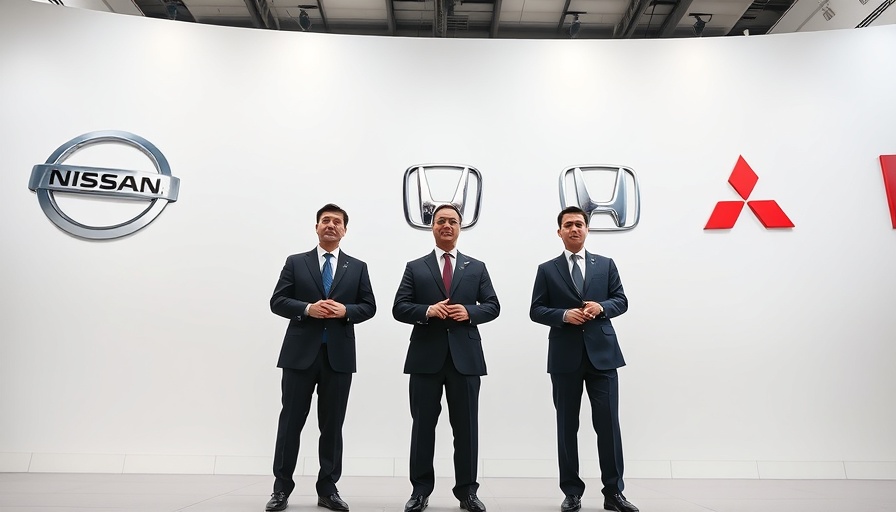
The Collapse of Ambitions: Nissan and Honda's Merger Talks End
The ambitious talks between Nissan and Honda, two giants of the Japanese automotive industry, have come to an unexpected halt. In a joint statement, Nissan, Honda, and their junior partner Mitsubishi Motors declared the termination of their memorandum of understanding that aimed to explore a potential merger. Initially, the plan was set to forge a powerful new entity aimed at rivaling the likes of Toyota and Volkswagen and countering the rapidly growing influence of Chinese car manufacturers. However, a series of stumbling blocks emerged, leading to the unfortunate breakdown of negotiations.
Significant Stakes and Concerns
The proposed merger represented a combined sales forecast of around $191 billion, with the potential to produce over eight million vehicles a year. This strategic move was originally perceived as a much-needed catalyst for Nissan, which has grappled with underwhelming sales figures and corporate upheaval in recent years, exacerbated by a leadership crisis following Carlos Ghosn’s exit. Conversely, Honda has maintained a strong market presence but identified the need for scaling up to counter external competition effectively.
Nissan's Diminished Position
Despite Nissan's historical status as Japan's second-largest automaker, internal dynamics revealed a reluctance to embrace a junior partnership. Reports suggest Nissan resisted Honda's proposal in which it would become a subsidiary, while Honda aimed for a structure assigning it more control and leadership in the new organization. Several industry observers noted that Nissan's insistence on equality in the discussions indicated an overestimation of its position, with analysts pointing to management issues as a key factor in its current crisis.
Implications and Future Directions
Without a successful merger, both companies find themselves at critical junctures, with Nissan possibly seeking new partnerships, like the interest expressed by Taiwanese tech firm Foxconn. Meanwhile, Honda may continue pursuing competitive strategies, particularly in the rapidly evolving electric vehicle (EV) space where both companies had originally planned a collaborative venture.
In many ways, this failed merger paints a broader picture of the challenges faced by traditional automakers in the 21st century, especially in light of increased competition from agile new entrants and a shifting landscape to electric vehicles. As economic pressures persist, how these companies navigate their upcoming challenges will be closely monitored by industry experts, stakeholders, and consumers.
The Broader Context: Lessons for the Industry
The merger talks between Nissan and Honda highlight important lessons for the automotive industry at large. Firstly, the need for auto manufacturers to reevaluate strategies in the face of increasing competition from Chinese and other emerging firms is critical. The lessons learned from the negotiations between Nissan and Honda might serve as a cautionary tale on mergers, showcasing the importance of aligning corporate identities and objectives upfront.
 Add Row
Add Row  Add
Add 




Write A Comment